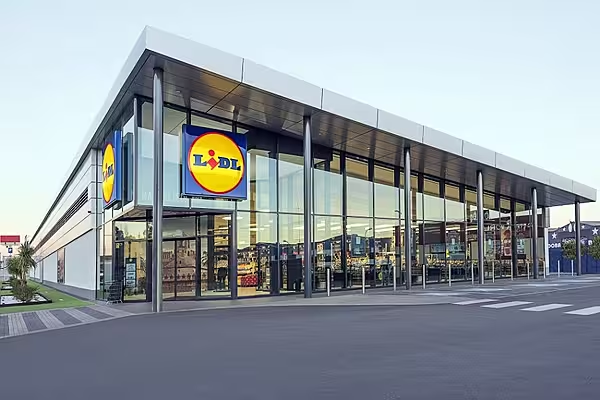The British arm of German supermarket chain Lidl will accelerate new-store openings in the next few years, after it slowed to 15 openings in the 2023/24 financial year, the group announced on Wednesday.
Having opened 50 stores in 2022/23, Lidl GB focused its investment in the year ending 28 February 2024 on improving its distribution and warehouse infrastructure, as well as existing stores.
It ended the period with 964 UK stores.
Targets
CEO Ryan McDonnell said that openings would rise from 23 in 2024/25 to around 40 in 2025/26, “and hundreds more after that.”
McDonnell said that he was unsure of the ceiling for Lidl GB.
In an interview, he told Reuters, “I don’t know whether that’s 1,500, 1,600, 1,700 – I can’t say – but the ambition is really going to be about the market demand and our brand development.”
Rival discounter Aldi has a target of 1,500 stores.
Competition
Germany’s Schwarz Group owns Lidl GB.
The retailer and its peer Aldi have expanded rapidly over the past two decades, transforming the UK supermarket scene and forcing traditional players – including market leader Tesco and number-two retailer Sainsbury’s – to implement competitive pricing.
Aldi is the UK’s fourth-largest grocer, with a market share of 10.4%, while Lidl is number six, with 7.7%.
Lidl is currently Britain’s fastest-growing bricks-and-mortar grocery operation, with Ocado taking the top spot in terms of overall growth, according to market researcher Kantar.
It made a pre-tax profit of £43.6 million in 2023/24, versus a loss of £76 million the year before.
Revenue rose by 16.9%, to £10.9 billion, driven by strength in fresh fruit and vegetables, as well as bakery products.
In its results, Lidl GB noted, ‘Profit was driven by volume growth from new and existing customers, and focused cost control to drive efficiencies and margin.’
McDonnell said that the business has “great momentum” going into Christmas, but cautioned about last month’s UK government Budget, which raised employment taxes and hiked the minimum wage.
He said that these measures would add “tens of millions” of pounds to costs next year.
Read More: UK Grocery Sales Slow Ahead Of Black Friday And Christmas – NIQ





